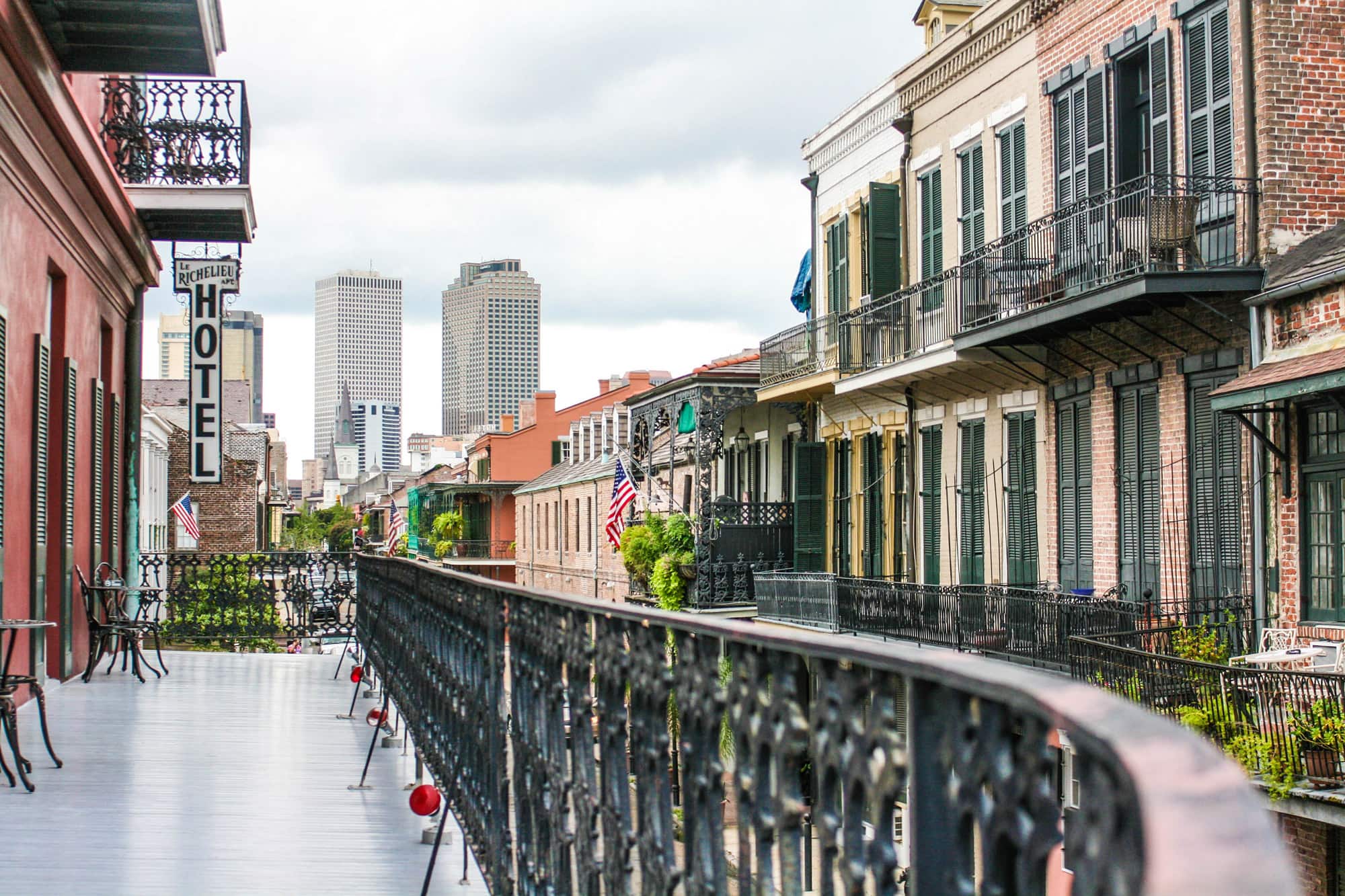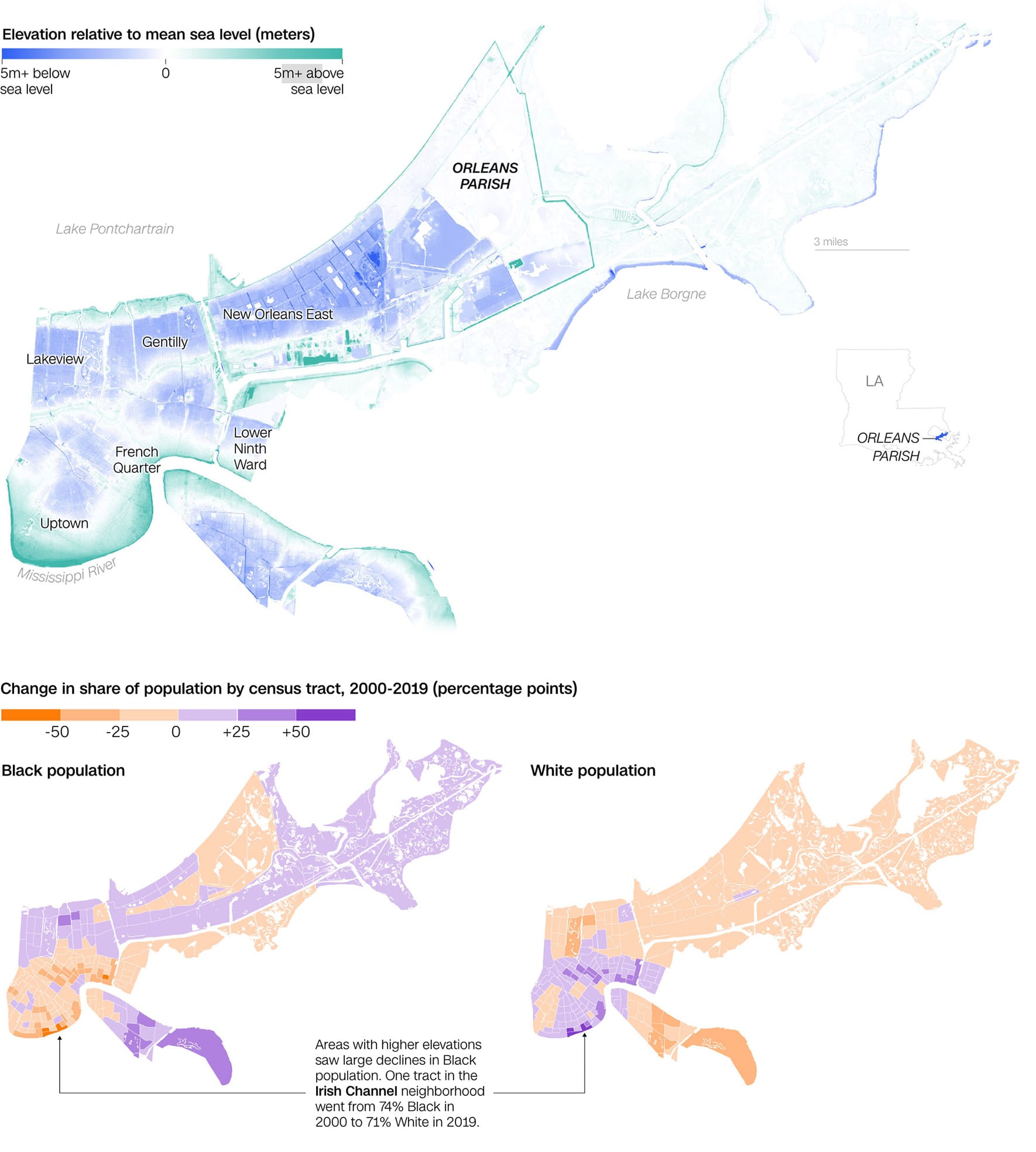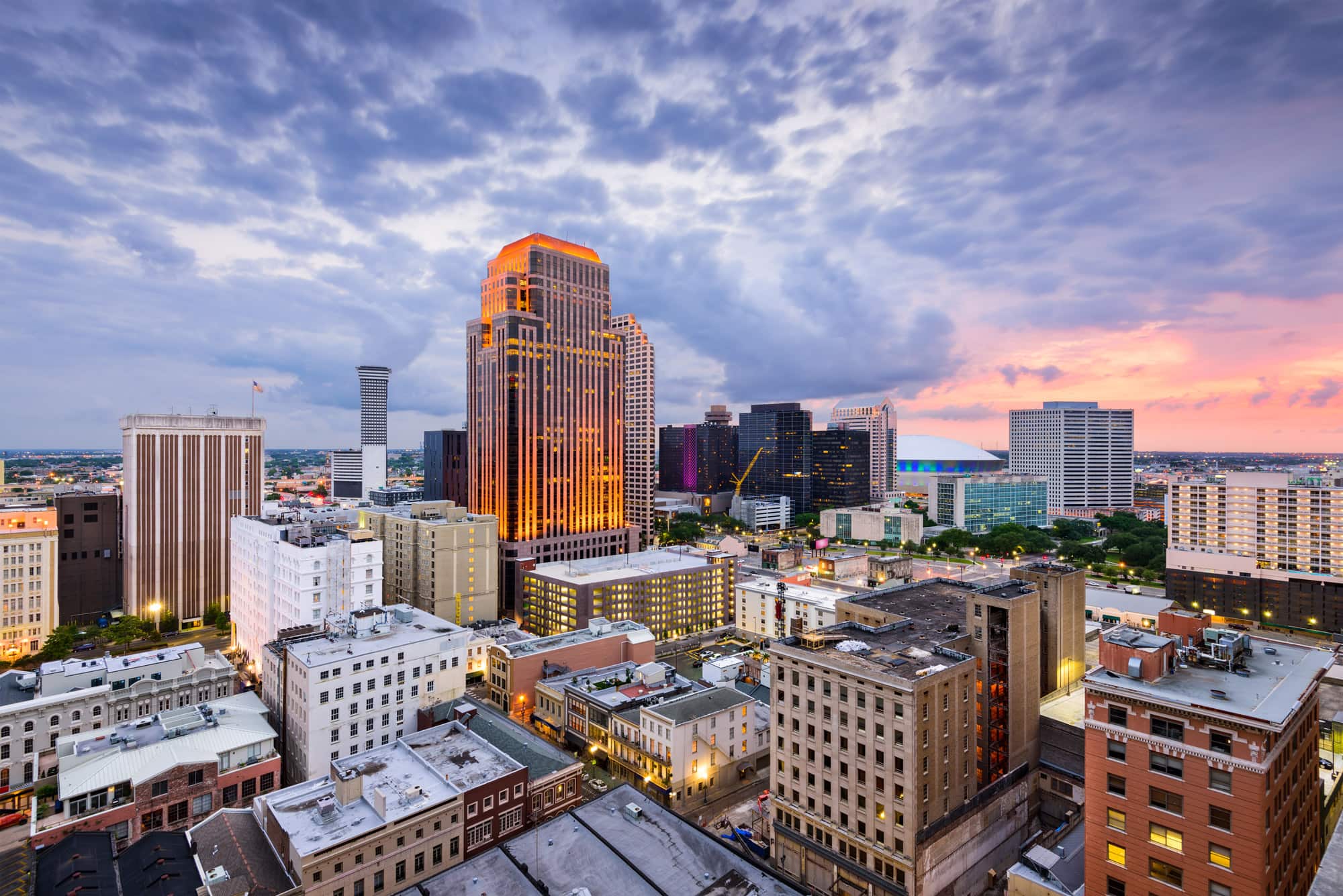
The Big Easy Ain’t That Easy Anymore
By now, many have realized that New Orleans is among the nation’s most vulnerable cities to climate change. Hurricanes and other severe weather events are occurring more frequently, causing devastating flooding and leaving a trail of financial ruin in their wake. With that said, those looking to purchase real estate in the Big Easy have taken notice, and they’ve got their sights set high — on the high ground, that is — and it’s causing affordability issues for many of the city’s long-term residents.
Seeking High Ground: The Shift in New Orleans’ Demographics
According to the article “High Ground, High Prices” published by CNN, data shows that New Orleans’ higher elevation neighborhoods are experiencing a new wave of climate-based gentrification:
“U.S. Census demographic data found that the highest-ground areas (census tracts with a median elevation of a meter or more) shifted from about 58% White and 35% Black in 2000 to 69% White and 21% Black by 2019.”

Graphic: Renée Rigdon, CNN
While the demographics of these neighborhoods have shifted substantially, the cost of real estate in these areas has taken off. Home prices in places like the Lower Garden District, the Irish Channel, and Audubon have appreciated by more than $150,000 since 2015, further pushing homeownership out of reach for many. It’s such a sharp rise in cost that some of the current property owners are struggling to pay the increase in property taxes, forcing them to move out of their beloved homes.
Why Gentrification Is Tough

As in other parts of America, a perverse prevalence of racist attitudes and rampant discrimination practices have plagued the Lousiana real estate industry. Before the Fair Housing Act of 1968, redlining, racial steering, and outright refusal to underwrite or issue loans to Black Louisianans played a major part in preventing residents from achieving property ownership and accumulating the multi-generational financial benefits real estate can provide, including:
- Appreciating property values
- Building equity
- Home equity loans (oftentimes used by families to pay for higher education or start a business)
- Access to education
- Access to economic opportunities
- Rental income
Even today, the majority of renters in New Orleans are Black, and there are more renters than property owners in the city. In other words, policies that existed less than two mortgages ago are still having dire economic effects on these communities while more affluent buyers get another investment opportunity. And the climate-motivated gentrification of higher ground is only making things tougher.
“The people who made these neighborhoods desirable and created the culture that thrived there have been pushed out,” Cashauna Hill, the executive director of the Louisiana Fair Housing Action Center told CNN.
Rising Costs Is Not Just a New Orleans’ Issue
There’s a housing shortage across the nation sending prices sky-high. According to the National Multifamily Housing Council (NMHC) and National Apartment Association (NAA), the U.S. will be short roughly 4.6 million units by 2030. That’s forcing many local governments, non-profits, and developers who aim to tackle the issue to get creative.
For instance, cities like Denver, Colorado — known for its high mountain peaks and even higher rent costs — have introduced a revolving loan fund to help provide immediate housing subsidies. Meanwhile, Minneapolis has invested in large-scale developments, like a 90-family mixed-income property that uses locally sourced materials and other amenities like a community garden and solar panels, to “integrate” lower-income families rather than separate them. Perhaps something similar will make its way to New Orleans in the future.
How You Can Help as a Real Estate Professional
While the economic consequences of this dark time in American history still resonate throughout the state, you have the opportunity to begin making a difference as a real estate professional. Not only should you defend and uphold the Fair Housing Act at all costs, but be sure to educate your clients on the role that access to housing has in creating a more just and equitable society. If Fair Housing is something that you feel passionately about, you can volunteer with or donate to the National Fair Housing Alliance in Louisiana.
The content provided on this website is deemed accurate at the time of creation.


Comments